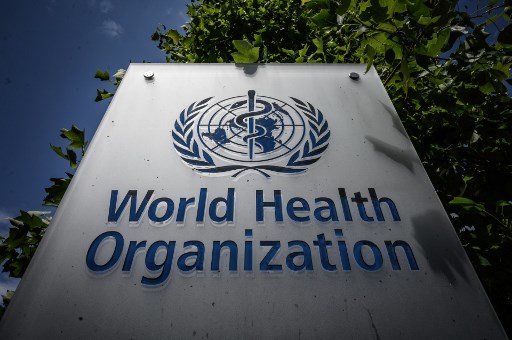
403
Sorry!!
Error! We're sorry, but the page you were looking for doesn't exist.
WHO cautions of high risk of polio outbreak in Gaza amid deteriorating sanitation conditions
(MENAFN) The World Health Organization (WHO) has issued a warning about the imminent risk of a polio outbreak in and around the Gaza Strip due to the worsening health situation and the deteriorating sewage system in the region. This alert comes in the wake of the detection of circulating vaccine-derived poliovirus type 2 (CVDPV2) in wastewater samples in Gaza. Ayadil Saparbekov, the head of the WHO health emergencies team in Gaza and the West Bank, emphasized the severity of the situation during a press briefing in Geneva, which he attended via video link from Jerusalem. Saparbekov highlighted the high risk of the virus spreading not only within Gaza but also potentially on an international scale, given the extremely poor water sanitation conditions in the area.
In response to this urgent health threat, WHO and UNICEF teams are scheduled to arrive in Gaza on Thursday to collect human stool samples as part of their efforts to evaluate the risks associated with the virus's detection. Saparbekov stated that this assessment is expected to be completed by the end of the week, which will enable health officials to make informed recommendations. These may include the necessity for a widespread vaccination campaign, the specific type of vaccine to be used, and the target age group for vaccination. Polio, a highly contagious virus that primarily affects children under the age of five, can invade the nervous system and cause paralysis, making immediate action critical to prevent an outbreak.
Meanwhile, the Israeli military has announced plans to begin administering polio vaccines to soldiers serving in the Gaza Strip following the discovery of the virus in test samples from various areas within the coastal enclave. The military has also coordinated with international organizations to ensure that more than one million of Gaza's 2.3 million residents have access to the vaccines. Public health officials and aid organizations continue to stress that without adequate health services, the population of Gaza remains particularly vulnerable to disease outbreaks. The collective efforts aim to mitigate the risk and protect the health of both the local population and those potentially affected beyond the region.
In response to this urgent health threat, WHO and UNICEF teams are scheduled to arrive in Gaza on Thursday to collect human stool samples as part of their efforts to evaluate the risks associated with the virus's detection. Saparbekov stated that this assessment is expected to be completed by the end of the week, which will enable health officials to make informed recommendations. These may include the necessity for a widespread vaccination campaign, the specific type of vaccine to be used, and the target age group for vaccination. Polio, a highly contagious virus that primarily affects children under the age of five, can invade the nervous system and cause paralysis, making immediate action critical to prevent an outbreak.
Meanwhile, the Israeli military has announced plans to begin administering polio vaccines to soldiers serving in the Gaza Strip following the discovery of the virus in test samples from various areas within the coastal enclave. The military has also coordinated with international organizations to ensure that more than one million of Gaza's 2.3 million residents have access to the vaccines. Public health officials and aid organizations continue to stress that without adequate health services, the population of Gaza remains particularly vulnerable to disease outbreaks. The collective efforts aim to mitigate the risk and protect the health of both the local population and those potentially affected beyond the region.

Legal Disclaimer:
MENAFN provides the
information “as is” without warranty of any kind. We do not accept
any responsibility or liability for the accuracy, content, images,
videos, licenses, completeness, legality, or reliability of the information
contained in this article. If you have any complaints or copyright
issues related to this article, kindly contact the provider above.


















Comments
No comment